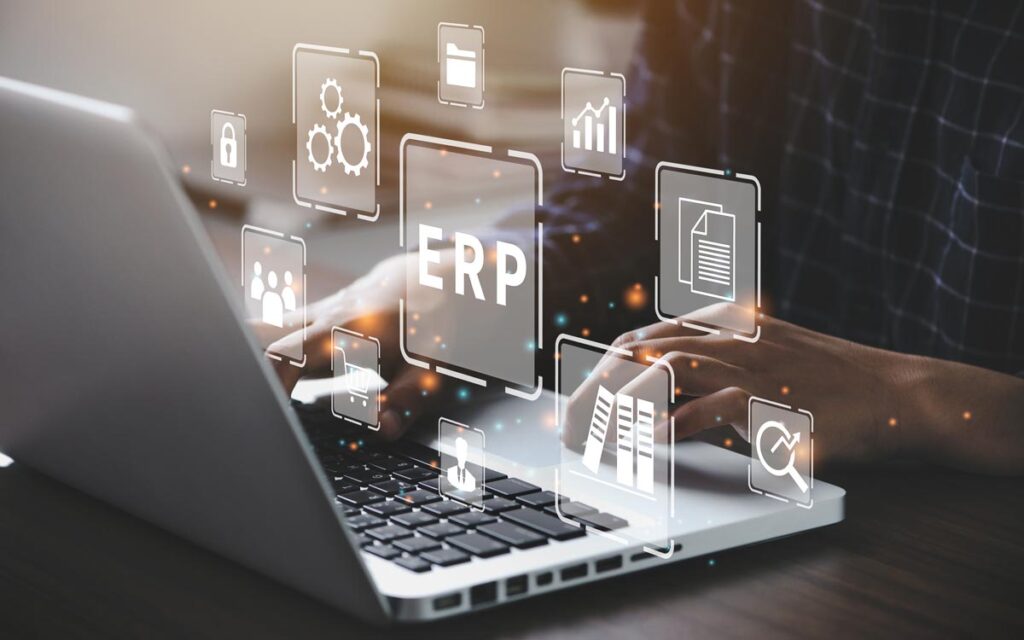
Imagine running a business where every part, from sales and inventory to customer relationships, works together perfectly, like a well-rehearsed orchestra. That’s what Enterprise Resource Planning (ERP) systems do for businesses.
But what is an ERP system used for, exactly? It’s like the conductor of that orchestra, ensuring every section plays in harmony, making the business run smoother, faster, and more efficiently.
This blog will dive into the world of ERP systems, shedding light on how they can revolutionize the way businesses operate, making everything from project management to inventory tracking a breeze.
Understanding ERP Uses
What is an ERP System Used For?
At its core, an ERP system is a software platform that combines numerous business functions into one comprehensive system to streamline processes and information across the organization.
Think of it as a central hub where every piece of data—from sales orders and inventory levels to customer databases—is stored, accessible, and manageable in real-time. But the evolution from traditional management systems to modern ERPs has been a game-changer, especially with the advent of cloud-based ERP, which offers even greater flexibility and accessibility.
Modern ERPs are not just about bringing different business operations under one roof; they’re about doing it in a way that increases efficiency, keeps data secure, and provides a single source of truth for everyone in the organization. Whether it’s managing the vast complexities of inventory for a retail giant or simplifying project tasks in a small business, ERP systems have proven to be indispensable tools for managing a wide array of business operations.
Key Uses and Benefits of ERP Systems
ERP systems are like Swiss Army knives for businesses, equipped with tools for almost every aspect of business operations. Let’s explore some of the critical areas where ERP shines:
- Centralizing Business Operations: Imagine having all your business data and processes in one place, easily accessible and updated in real-time. That’s what ERP offers—a single source of truth that increases efficiency and ensures that data is secure and accurate across departments.
- Streamlining Inventory Management: With ERP, gone are the days of manually tracking inventory levels and orders. The system provides:
- Real-time visibility into inventory, helping businesses manage their stock levels more effectively.
- Automated reordering processes, reducing the risk of overstocking or stockouts and ultimately reducing costs.
- Enhancing Customer Relationship Management (CRM): ERP systems often include CRM functionalities that help businesses manage their interactions with current and potential customers. This integration improves:
- Sales and marketing strategies by providing detailed insights into customer behavior and preferences.
- Customer service by ensuring that all customer information is centralized and easily accessible, enabling businesses to provide more personalized and efficient service.
- Boosting Project Management: Project management becomes a whole lot easier with ERP systems. They help by:
- Providing tools for scheduling, budgeting, and resource allocation, all within the same platform.
- Offering real-time insights into project progress, helping teams stay on track and address issues promptly.
Streamlining Supply Chain Management
ERP systems play a pivotal role in supply chain management, ensuring smooth coordination between suppliers, inventory, and production. By integrating all aspects of the supply chain into a unified platform, businesses can:
- Monitor inventory levels in real-time to avoid overstocking or stockouts.
- Automate purchase orders and replenishment to save time and money.
- Track shipments and delivery timelines to enhance reliability and efficiency.
With ERP’s centralized approach, supply chain bottlenecks are minimized, enabling businesses to maintain seamless business operations and meet customer expectations.
Optimizing Financial Operations with Accounting Software
ERP platforms often come equipped with integrated accounting software, streamlining financial processes such as accounts payable and order management. Businesses can:
- Automate billing and payment workflows for efficiency.
- Generate accurate financial reports that support compliance and transparency.
- Track and allocate costs across business operations for better budgeting.
This holistic approach simplifies financial management, saving time and money while providing a clear view of a company’s fiscal health.

Advantages of Using ERP Systems
There are many advantages of ERP systems Here are just a few:
- Increases Efficiency and Productivity: By automating processes and consolidating business functions, ERP systems allow businesses to operate more efficiently, freeing up employees to focus on more strategic tasks.
- Saves Time and Reduces Costs: Automation and improved efficiency naturally lead to significant time and cost savings, as businesses can streamline operations and make better-informed decisions faster.
- Keeps Data Secure: In an age where data breaches are a constant threat, the robust security features of cloud-based ERP solutions provide peace of mind by protecting sensitive business data.
Enhancing Business Intelligence with ERP
Modern enterprise resource planning systems go beyond operational tasks by incorporating advanced business intelligence tools. These features help businesses:
- Analyze large datasets to uncover trends and opportunities.
- Generate actionable insights for strategic decision-making.
- Create detailed reports on performance metrics like accounts payable, sales, and costs.
By leveraging the power of ERP’s software solution, companies gain a competitive edge, making smarter decisions backed by accurate, real-time data.
Automating Financial Operations
Imagine a world where financial reports generate themselves, where budgeting is as simple as clicking a button, and where financial compliance is seamlessly integrated into daily operations.
This isn’t a dream; it’s what ERP systems make possible. By automating financial processes, ERP systems ensure:
- Accuracy and Compliance: With automated calculations and built-in compliance standards, errors are minimized, and staying up to date with financial regulations becomes straightforward.
- Real-time Financial Reporting: Instant access to financial data enables businesses to make informed decisions quickly, without waiting for end-of-month reports.
The advantage here is clear: ERP systems not only save time but also significantly reduce the risk of costly financial errors, ensuring that businesses can focus more on growth and less on number crunching.
Advancing Sales and Marketing
In the fast-paced world of sales and marketing, information is power. ERP systems provide a wealth of data that can help businesses tailor their strategies to meet the ever-changing demands of the market. Here’s how ERP systems are revolutionizing sales and marketing:
- Data-Driven Strategies: By analyzing customer data and sales trends, businesses can develop targeted marketing campaigns and adjust sales strategies to maximize revenue.
- Streamlined Sales Processes: From lead management to order fulfillment, ERP systems provide a seamless flow of information, ensuring that sales teams can move quickly and efficiently.
With these capabilities, ERP systems are not just tools for back-office management but are also powerful engines driving forward the customer-facing aspects of business.
Flexible and Scalable for Growth
One of the most compelling aspects of ERP systems is their scalability. Whether you’re running a small business or a large enterprise, ERP systems can be tailored to meet your specific needs. This flexibility means that as your business grows, your ERP system can grow with you, providing:
- Customizable Modules: Whether you need advanced inventory management or a comprehensive CRM platform, ERP systems offer a range of modules that can be customized to suit your business needs.
- Cloud-Based ERP: With cloud-based ERP solutions, businesses can enjoy the benefits of ERP without the need for heavy upfront investments in IT infrastructure, making it easier than ever for small businesses to leverage the power of ERP.
ERP Implementation: Steps and Considerations
Implementing an ERP system is a significant step for any business. It requires careful planning, a clear understanding of your business needs, and a commitment to training your team to make the most of the new system. Key steps include:
- Choosing the right ERP vendor: Look for vendors with experience in your industry and a track record of successful implementations.
- Customization and Integration: Tailor the ERP system to fit your business processes, and ensure it integrates seamlessly with any existing systems.
- Training and Support: Invest in comprehensive training for your team and ensure ongoing support from your vendor for a smooth transition.
The Bottom Line
ERP systems are no longer optional; they are essential tools for businesses determined to succeed in the modern world. By centralizing business operations, automating processes, and providing invaluable insights into every aspect of the business, ERP systems help companies increase productivity, reduce costs, and secure their data.
Whether you’re a small business or a large enterprise, the benefits of using ERP systems are undeniable.
Discover how Cre8tive’s Turnkey ERP Solution can help your business
